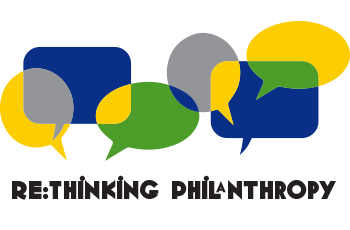The community of Ithaca has engaged in a “community read” to help raise visibility around diversity, inclusion, and justice. This month’s blog post offers perspective on the initiative’s impact from one of our members.
Ithaca community leaders and Tompkins County’s Multicultural Resource Center have been hosting a community read of Michelle Alexander’s The New Jim Crow: Mass Incarceration in the Age of Colorblindness since last September. Collaborators also include Community Foundation of Tompkins County’s Social Justice Fund to help raise the visibility of issues diversity, inclusion and justice among donors. The book was chosen to spotlight the systemic racism and devastating impacts of mass incarceration. Nearly 2,000 books have been distributed in the area, including over two hundred copies that are being circulated by the public library. At one point this fall only three books were available through any of the project’s distribution mechanisms county-wide. What is better than handing out the books though, is the engagement that the community read has engendered. At the kickoff event, 450 people turned out to hear a speakers’ panel which included activists, educators and residents who were formerly incarcerated. Each month there is a community gathering, with a conversation, activity or performance to advance our understanding of the current chapter. Book clubs throughout the county are reading the text and many have made use of trained facilitators who have volunteered their time to lead club discussions. A film series at both the Tompkins County Public Library and the Africana Center at Cornell engage still others.
At the last public gathering on MLK Day, a re-entry simulation was held, with volunteers playing the roles of local resource providers (Department of Social Services, the homeless shelter, employment agencies, etc.) as well as probation, courts and housing agencies. Each volunteer had a list of the rules area agencies currently operate under. For example: no housing assistance could be provided without proof of homelessness, which can only be obtained from the homeless shelter; a bed at the shelter was only available for every other person applying because currently about half of those who need shelter are turned away. Arriving community members were given a single sheet with a personal identity to assume, along with a list of tasks they needed to perform to be successful. A parent had to meet with social services to begin planning for family reunification for example, but not before they checked in with their probation officer. They needed a job and housing, both of which required multiple other inputs, before they could even start the process of regaining custody of their kids. Frustration mounted for many of the participants who faced these challenges for just half an hour. It was a very effective taste of the stress and barriers our returning residents must endure everyday.
At each gathering (these will continue through April) there is a push to jump quickly towards action. The organizers are quite clear that learning about the issue and sitting with the new knowledge is most important now. The skill of listening and being present for each other is being sharpened. At the final meeting there will be a broad discussion about next steps for both individuals and area organizations.
As a funder, I know that supporting direct services must be a part of the local response to mass incarceration and the impact it has on our community, particularly on our communities of color, but it is clear that this will never be enough. Gwen Ifill said “Change comes from listening, learning, caring and conversation”. We hope that by supporting the community read we can begin a new conversation- one that becomes the first step in inspiring the kinds of organizing and painstaking work that will be required for systemic change.
The organizers of the Tompkins County community read of The New Jim Crow are advancing an idea to prepare a toolkit and box up the books that are turned in so that they can be sent to another community. Anyone interested in more details about the community read or the possibility of hosting a similar program should contact Sue Kittel at sdk@parkfoundation.org.
About the Author:
Sue Kittel works at the Park Foundation, staffing both the Community Needs and Animal Welfare programs. Her work through the Community Needs program concentrates on opportunities for low-income residents of Tompkins County, NY. An important value of the Foundation is equity and the Foundation places a strong emphasis on equity in human service grants and efforts which lead to good outcomes for all. Previous to working at the Foundation, Sue administered federal funds in support of affordable housing and community development in the City of Ithaca.


Post a comment